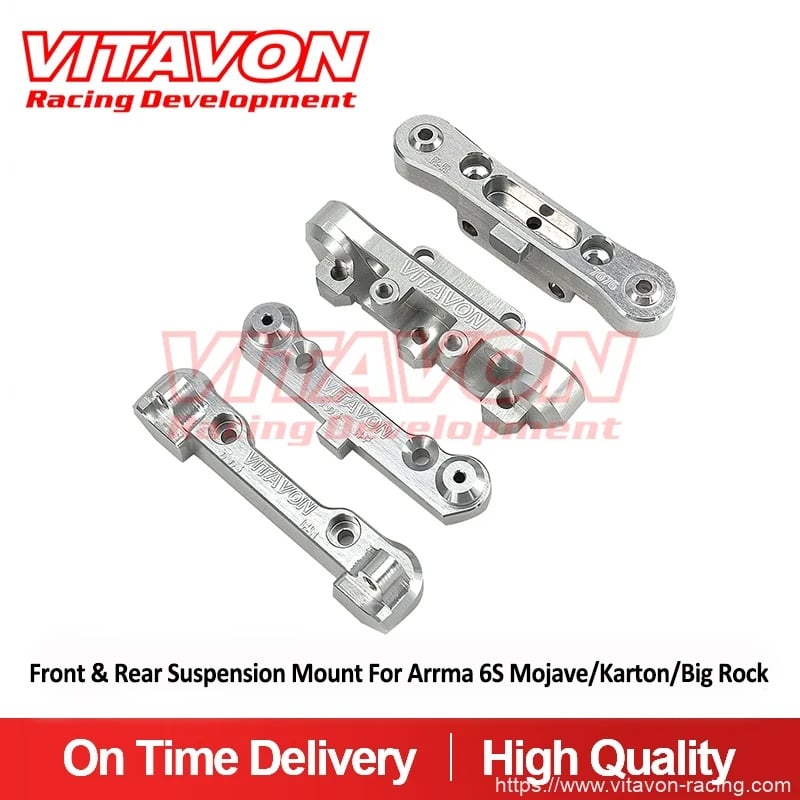Leading the Charge in Chinese Manufacturing with Best Disc Unlimited Excellence
Table of Contents
- Strategies for Enhancing Quality Control in Chinese Manufacturing
- Integrating Advanced Technology for Operational Efficiency
- Leveraging Workforce Skills for Competitive Advantage
- Sustainable Practices in Chinese Manufacturing: A Path Forward
- Establishing Strong Supplier Relationships for Consistent Excellence
- Innovative Trends Shaping the Future of Chinese Manufacturing
- FAQS
- Related Posts
You know, in the rapidly changing world of Chinese manufacturing, companies like Dongguan Vitavon Sports Goods Co., Ltd. really stand out. They've got this amazing commitment to innovation and precision that sets the bar pretty high. Just look at the latest industry reports—it's crazy! By 2025, the Chinese manufacturing sector is expected to hit over $4 trillion. That's some serious potential, right? At the heart of it all is the "Disc Unlimited" philosophy, which is all about chasing perfection in both design and manufacturing. Vitavon Racing System really embodies this mindset. They’ve nailed it by combining modern modular design with a focus on race-tuning. They even use aerospace-grade aluminum and hardened HS steel to create top-notch components. Plus, with oversized bearings and hardware all engineered for peak performance, it's clear that Vitavon isn't just keeping up with the industry; they’re leading the way into a whole new era of exceptional quality and innovation.

Strategies for Enhancing Quality Control in Chinese Manufacturing
You know, the world of Chinese manufacturing is changing super fast, and businesses are really grabbing onto the idea of boosting their quality control—it’s become a game-changer for staying competitive. These days, a lot of small and medium enterprises (SMEs) are jumping on the bandwagon with Manufacturing Execution Systems (MES). It’s pretty amazing because these systems can actually make production a lot smoother and more efficient. Some reports even say that using MES can chop production costs by as much as 30%! That's huge for any company trying to make the most of their resources and streamline their operations. Plus, going digital like this not only tightens up quality control and traceability but also helps businesses keep up with the industry standards they need to meet.
And let’s not forget about the role of Artificial Intelligence (AI) in this mix. It’s really shaking things up in terms of how quality assurance works these days. AI can monitor production lines in real time, spotting defects and inefficiencies like it’s nobody’s business. I came across a study recently that showed companies using AI for quality control have seen their product returns drop by 20%—thanks to defects, of course. As these smaller manufacturers start embracing these new technologies, they’re not just improving quality; they’re creating a culture of ongoing improvement that’s helping them lead the way in the competitive world of Chinese manufacturing.
Leading the Charge in Chinese Manufacturing with Best Disc Unlimited Excellence - Strategies for Enhancing Quality Control in Chinese Manufacturing
| Quality Control Strategy | Description | Implementation Rate (%) | Impact on Production (Quality Score) |
|---|---|---|---|
| Statistical Process Control | Utilizing statistical methods to monitor and control a process | 75% | 4.5 |
| Total Quality Management | An organization-wide approach focused on continuous improvement | 85% | 4.7 |
| Lean Manufacturing | Minimizing waste without sacrificing productivity | 80% | 4.6 |
| Six Sigma | Data-driven approach to eliminate defects | 90% | 4.8 |
| Quality Audits | Regular evaluations to ensure compliance with standards | 70% | 4.4 |
Integrating Advanced Technology for Operational Efficiency
You know, in the fast-paced world of Chinese manufacturing, companies like Best Disc really are setting a high bar by bringing in advanced tech. I came across this interesting report from McKinsey that said manufacturers who embrace Industry 4.0 technologies could boost their productivity by as much as 20 to 30%. Pretty impressive, right? By using automation, the Internet of Things (IoT), and artificial intelligence (AI), businesses are not just making their operations smoother; they're also slashing costs and speeding up timelines.
If companies really want to ramp up their efficiency, it’s crucial to take a well-rounded approach to tech integration. So, some good tips for rolling out these advanced technologies are: start with a detailed needs analysis to figure out where the issues are, invest in employee training to help everyone get on board with the new systems, and keep an eye on performance metrics so you can tweak your strategies as you go. A report from the Boston Consulting Group really drives this point home—companies that engage their workforce during these tech transitions often see success rates jump by up to 25%. That’s no small feat!
Plus, adopting smart manufacturing technologies—like predictive maintenance and real-time analytics—can really up your game when it comes to making decisions and allocating resources. By consistently reviewing production data, manufacturers can catch bottlenecks before they blow up into major issues. This leads to smoother operations and better product quality. With Best Disc leading the way in this transformation, their push to incorporate advanced technologies clearly places them at the cutting edge of manufacturing excellence in China.

Leveraging Workforce Skills for Competitive Advantage
You know, in today’s cutthroat world, making the most of the skills in our workforce has become super important for manufacturers in China. A report from McKinsey & Company reveals that about 87% of organizations around the globe are dealing with skill gaps in their teams. That means it’s crucial for manufacturers to step up and invest in upskilling and reskilling their folks. When companies align their workers' capabilities with the latest tech trends, they can really boost productivity and spark innovation. With automation and AI tools evolving so fast in manufacturing, it’s clear we need a skilled workforce that can adapt to these changes like pros.
Plus, a study by Deloitte pointed out that businesses that focus on workforce development see a whopping 25% jump in performance. In the Chinese manufacturing scene, where quality and efficiency are everything, tapping into the talent of a skilled workforce is essential for staying ahead of the game. Take Best Disc Unlimited, for example. They're setting an impressive standard in this area by rolling out comprehensive training programs that enhance both technical skills and soft skills. This approach not only nurtures a culture of continuous improvement but also empowers employees to make more meaningful contributions to the manufacturing process, ultimately resulting in top-notch product quality and happy customers.

Sustainable Practices in Chinese Manufacturing: A Path Forward
You know, the manufacturing scene in China is really evolving. They’re shifting gears towards more
sustainable practices, and it’s pretty impressive how they’re aiming to be
global frontrunners in eco-friendly production. By adopting greener methods, these manufacturers are
not just boosting their efficiency but also cutting down on their impact on the planet. They're really getting into things like using
renewable energy, recycling what they can, and optimizing their supply chains. It’s all part of the game plan to make a difference.
And here’s a little tip: if you think about investing in
energy-efficient technologies, you can actually save
a bunch on operational costs. Like, putting up solar panels or tapping into wind energy can seriously help
factories cut back on fossil fuel reliance. That’s a win for both the wallet and the environment!
Let’s not forget, creating a sustainability culture across the supply chain can
really spark some positive change. Teaming up with suppliers who share the same eco-friendly values means that sustainability becomes
part of the fabric of production.
Here’s another helpful tip: regularly checking in and auditing your supply chain partners can shine a light on where there’s room for
growth and solidify everyone’s commitment to sustainable practices. Plus, joining in on workshops or training sessions about
sustainability can really empower employees and help everyone feel like they’re on the same page.
Establishing Strong Supplier Relationships for Consistent Excellence
You know, building solid relationships with suppliers is super important for manufacturers looking to stand out and keep things running smoothly these days. In the hustle and bustle of today's fast-paced market, it's not just about controlling costs anymore. It's really become a strategic game-changer! Manufacturers really need to focus on working together with their suppliers to boost efficiency, lower risks, and, at the end of the day, make sure their customers are happy. This change does more than just aim for cost savings and smoother operations; it actually helps create a supply chain that's tougher and can shift gears when the global economy throws a curveball.
With the way the market is shifting, managing supplier risks has become a big deal for businesses everywhere. There’s been a lot of chatter lately about how to optimize supply chains, and it's clear that having the right tools to really see how suppliers are doing is crucial. By using advanced analytics and tech, companies can stay ahead of the game, address any bumps in the road before they escalate, and grab those chances to make things better. When manufacturers invest time into these relationships, they’re not just checking off boxes—they’re really stepping up to meet customer needs and gaining that edge in a marketplace that's always changing.
Innovative Trends Shaping the Future of Chinese Manufacturing
You know, the world of Chinese manufacturing is really changing fast these days! It’s wild to see how innovative trends are shaking things up, especially in precision engineering and design. A recent report by the China Association of Automobile Manufacturers shared some pretty exciting news: the production of high-performance automotive parts jumped by more than 15% over the past year! That’s a big leap toward using more advanced manufacturing techniques.
 Take Dongguan Vitavon Sports Goods Co., Ltd., for example; they’re really leading the way in this shift. They use aerospace-grade aluminum and hardened HS steel processes to make sure every product is top-notch.
Take Dongguan Vitavon Sports Goods Co., Ltd., for example; they’re really leading the way in this shift. They use aerospace-grade aluminum and hardened HS steel processes to make sure every product is top-notch.
What’s cool is that they’ve adopted a modular design for their racing systems. This makes it super easy to customize things, and it really helps with scaling up production. According to the International Organization for Standardization, manufacturers that go for modular designs can see efficiency boosts of up to 30%! And let’s not forget about VITAVON Racing System’s focus on high-quality oversized bearings and hardware. They truly get how important durability and precision are when crafting components that need to meet the tough standards of motorsport. As the industry keeps pushing for innovation, you can bet that companies embracing these trends are gonna be at the forefront, really redefining what excellence looks like in manufacturing.
FAQS
: MES helps small and medium enterprises (SMEs) improve production efficiency and flexibility, potentially reducing production costs by up to 30%.
AI enables real-time monitoring of production lines, helping to identify defects and inefficiencies quickly. Companies using AI-driven quality control have reported a 20% decrease in product returns due to defects.
Manufacturers are integrating renewable energy sources, recycling materials, and optimizing supply chains to enhance efficiency and minimize their ecological footprint.
Implementing energy-efficient technologies can significantly reduce operational costs, helping factories decrease their dependence on fossil fuels while contributing to sustainability goals.
Collaborating with suppliers who prioritize eco-friendly practices ensures that sustainability is integrated throughout production and supply chains.
Conducting workshops or training sessions on sustainability can empower employees and create a unified mission within the organization.
Regular audits can help identify opportunities for improvement in sustainability practices and reinforce commitments to adhering to sustainable manufacturing principles.
Effective quality control measures, facilitated by technologies like MES and AI, improve product quality and operational efficiency, allowing manufacturers to maintain a competitive edge.
The sector is increasingly shifting towards sustainable practices, aiming to become a global leader in environmentally responsible production methods.
Key strategies include embracing renewable energy, recycling materials, optimizing supply chains, and fostering a culture of sustainability throughout the organization.
Related Posts
-

Crafting Excellence: The Global Legacy of China's Best SCX24 Deadbolt Manufacturing
-

Unlocking Performance The Best Scx24 Deadbolt for Global Buyers
-

Ultimate Showdown: Best SCX24 Suspension Systems Compared for Peak Performance
-

What Enhancements Can You Expect from Scx10iii Upgrades for Your RC Experience?
-

Unleashing Traxxas Maxc to the World Quality That Conquers Global Markets
-

7 Compelling Reasons to Choose Vitavon Losi for Your Supply Chain Success
Blog Tags:




